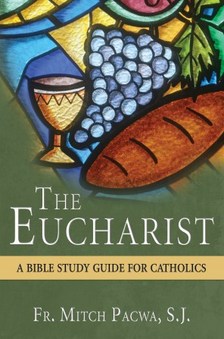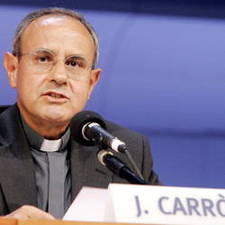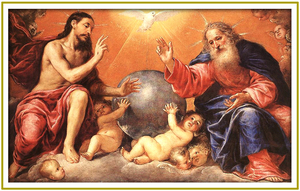 The New Testament is replete with references to believers being mature in their faith, in their manner of being a follower of Jesus Christ, of standing up and taking responsibility in the Church. Saint Paul speaks the people of Corinth in a direct way that helps us to see his view of being a mature Christian who takes adult faith formation seriously: “I gave you milk to drink, not solid food; for you were not yet able to receive it. Indeed, even now you are not yet able,” (1 Cor. 3:2).
The New Testament is replete with references to believers being mature in their faith, in their manner of being a follower of Jesus Christ, of standing up and taking responsibility in the Church. Saint Paul speaks the people of Corinth in a direct way that helps us to see his view of being a mature Christian who takes adult faith formation seriously: “I gave you milk to drink, not solid food; for you were not yet able to receive it. Indeed, even now you are not yet able,” (1 Cor. 3:2).
Through the decades the popes of have taught similarly. One example is Benedict XVI who exhorted priests to not be satisfied with “a childhood of faith”, meaning that many Catholics have yet to mature in their knowledge and practice of the faith. It seems as though we, in this most educated of centuries (at least in the first world) have yet to get past first level of discipleship. The pope observes that a lot of Christians “cannot — as adults, with competence and conviction — explain and elucidate the philosophy of the faith, its great wisdom and rationality” in order to illuminate the minds of others. To do this they need an “adult faith” and to see the bigger picture of a vigorous faith and a faith that works in mature ways that put what one believes into concrete action. It seems to me that we need a closer coherence between what we say we believe, how we worship and how we live. On many occasions Benedict has spoken thus to the Church through the bishops, priests and laity to be concerned with faith formation.
The current pope is echoing what his predecessors have said in spades, namely, Christians: grow up! You can see some of what the bishop of Rome is aiming at in his recent Apostolic Exhortation, The Joy of the Gospel (Evangelii Gaudium) numbers 160-175. Mature Christians is means that the Christian responds fully to the Lord’s call to discipleship.
What is needed is an educated heart and mind. Our work is nothing more and nothing less than being educated to Christian maturity. In a very real sense that is what the Church is about, this is what the ecclesial movements of Communion and Liberation, Opus Dei and Focolare are about. Personal holiness, a reasonable expression of faith, and a enlivened response to human need is what defines the real Christian person. But don’t fret. We are in-process of becoming, real Christian living means recognizes that we all are on a journey to wholeness and holiness. Here the lens of faith informs and shapes life whereby our happiness in this life and in the next is realized. Porta Fidei (the Apostolic Letter opening the Year of Faith by Benedict XVI) has this line that I think each of us needs to recall: “Through faith, this new life shapes the whole of human existence according to the radical new reality of the resurrection. … ‘Faith working through love’ becomes a new criterion of understanding and action that changes the whole of man’s life.” What the Pope is getting at is that we take adult faith formation with a degree of purpose. Hence, as Christians we have the modalities of a community of faith, the priest, and spiritual direction to help us walk the path given to us by the Lord. Each of these experiences will help us to recognize the contours of sin and grace: they keep reality alive.
The heart of the Gospel and the teachings of the Church is repentance and conversion. Conversion to what? Rather, it is not a what, but who. To convert means that we turn our lives over to Jesus Christ in a radical way: no reservations, no “ifs, ands or buts.” Our past is the past and it is redeemed, that is, our misdeeds and moral incompetencies are brought into the inner life of the Trinity (Father, Son & Holy Spirit) being made right. The Christian believes that it is the Trinity who renders judgement and mercy.
And here is the Good News: the offer of salvation made by God is crucial to the aim of belief and everything in the event of Christian proposal seeks to make this known. Good News “is the message capable of responding to the desire fro the infinite which abides in the human heart” (no. 165).
What I’ve quoted here before and what is renewed again: good catechesis needs good witnesses. How well does one “walk humbly with God.” Pope Paul VI said we need more witnesses than teachers of the faith. The “good witness” is the person who takes his or her faith seriously, who lives knowing that he or she is loved and redeemed by God. The saint, that is, the real Christian is not perfect perfect but the redeemed sinner.


